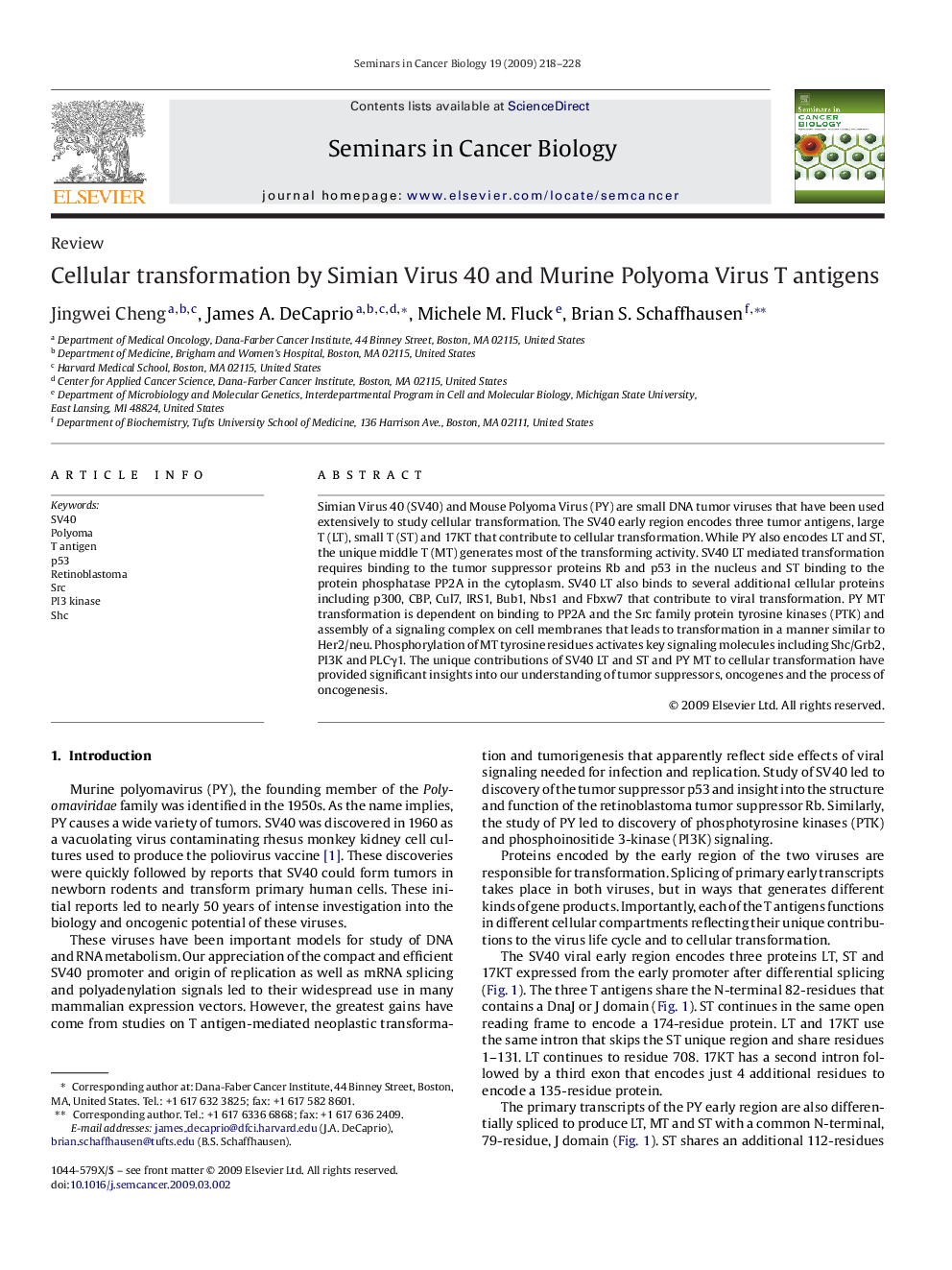| Article ID | Journal | Published Year | Pages | File Type |
|---|---|---|---|---|
| 2024026 | Seminars in Cancer Biology | 2009 | 11 Pages |
Simian Virus 40 (SV40) and Mouse Polyoma Virus (PY) are small DNA tumor viruses that have been used extensively to study cellular transformation. The SV40 early region encodes three tumor antigens, large T (LT), small T (ST) and 17KT that contribute to cellular transformation. While PY also encodes LT and ST, the unique middle T (MT) generates most of the transforming activity. SV40 LT mediated transformation requires binding to the tumor suppressor proteins Rb and p53 in the nucleus and ST binding to the protein phosphatase PP2A in the cytoplasm. SV40 LT also binds to several additional cellular proteins including p300, CBP, Cul7, IRS1, Bub1, Nbs1 and Fbxw7 that contribute to viral transformation. PY MT transformation is dependent on binding to PP2A and the Src family protein tyrosine kinases (PTK) and assembly of a signaling complex on cell membranes that leads to transformation in a manner similar to Her2/neu. Phosphorylation of MT tyrosine residues activates key signaling molecules including Shc/Grb2, PI3K and PLCγ1. The unique contributions of SV40 LT and ST and PY MT to cellular transformation have provided significant insights into our understanding of tumor suppressors, oncogenes and the process of oncogenesis.
